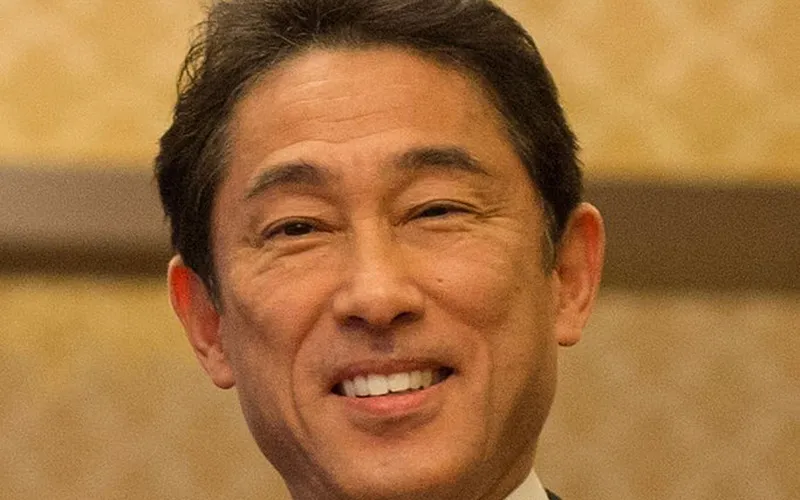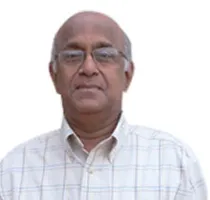-
CENTRES
Progammes & Centres
Location
Japanese and Indian foreign ministers, Mr Fumio Kishida and Ms. Sushma Swaraj, have now agreed to hold a meeting at an earlier date this year that would allow the foreign ministers of India, Japan and the US to conduct talks. This positive move will contribute significantly to creating stability in the Indo-Pacific.

Japan's Minister of Foreign Affairs, Mr. Fumio Kishida, recently paid a two-day visit to New Delhi. Following his reappointment after the Japanese general elections of December 2014, Mr Kishida chose India as the first destination for his official visit because he believed the relationship these two nations share is a special one. Mr Kishida met with Indian Prime Minister Narendra Modi, and also attended the 8th Indo-Japan strategic dialogue. This move to conduct regular dialogue stems from the fact that the Japan-India strategic cooperative partnership was in 2014 elevated to that of a "special" partnership. While these steps are set to continue to boost the momentum of Indo-Japanese bilateral relations, much progress is yet to be achieved. A large number of issues, such as the sale of the US-2 amphibious aircraft, and the long pending civil nuclear deal, still need to be addressed.
The year 2015 is special for Japan as it marks the 70th anniversary of the Hiroshima and Nagasaki atomic bombings of World War II. As the only nation to have suffered the fate of nuclear weapons, Japan holds peace and prosperity as a fundamental priority. India, a country that was under colonial rule, shares similar values and principles with Japan. These nations have thus been able to complement each other on issues related to the developments in the Indo-Pacific, permanent membership in the UN Security Council, terrorism, and the overall aim to shoulder more global responsibilities. These two leading Asian democracies have been successful in laying a solid foundation for the rapid development and advancement of the Indo-Pacific region.
Despite the progress made between India and Japan, there is still a need to deepen this relationship, as this will play a key role in shaping the future of this region. The power dynamics in the region are changing rapidly, and the nations in this region are grappling to establish a stable security architecture. The region is also being characterised by territorial and sovereignty issues, as well as the rapid growth of economies. In the wake of these developments, the roles that Asia's second and third largest economies can play in leading and guiding many of the smaller Asian nations are crucial.
Following the summit meeting between Prime Minister Modi, and Prime Minister Abe in September 2014, they met again in Brisbane in November 2014. They utilised this opportunity to reiterate their respective positions in both bilateral, as well as regional and global affairs. It was here that Prime Minister Abe emphasized the importance of strengthening the Japan-India-US trilateral cooperation. Dialogue between the three had previously been conducted only at the joint secretary level. Thus Modi and Abe were keen to elevate this dialogue to the ministerial level.
At the 8th strategic dialogue held in New Delhi, Mr Fumio Kishida, and his Indian counterpart Ms Sushma Swaraj agreed to hold a meeting at an earlier date this year that would allow the foreign ministers of India, Japan and the US to conduct talks. This positive move will contribute significantly to creating stability in the Indo-Pacific.
Foreign Minister Kishida during this visit also proposed the need to strengthen the "three bridges," that link the region. The first bridge being "values and spirit," the second is "vibrant economy," and the third bridge is "open and stable seas." The first bridge which supports universal values, such as democracy, freedom, open economy and rule of law are openly endorsed by both nations. As free nations, both India and Japan have the ability to foster an order in the Indo-Pacific that supports these values.
With regard to the second bridge, both nations have deeply connected economies. Under 'Abenomics' and 'Modinomics,' they have the ability to further improve economic growth, and generate vitality not only for each other, but also to the region as a whole. As discussed between Ms Swaraj, and Mr Kishida at the 8th Strategic Dialogue, Japan has agreed to continue to contribute to the Make in India Initiative. India for its part has welcomed a spurt of approximately 15 percent in Japanese companies coming to India. While these efforts will continue, India should also encourage Japanese development initiatives in the North East of India to aid the regional connectivity between ASEAN and SAARC. Such connectivity will bolster India's economic growth, and consolidate its position as the base of economic growth for the Indo-Pacific.
As maritime nations India and Japan are committed to maintaining the freedom of navigation and commerce in the open seas. Both nations have a number of possibilities to ensure that peace and order is maintained in accordance with International Law. To buttress his point Mr Kishida referred to Prime Minister Abe's "three principles of the rule of law at sea" - namely - making and clarifying claims based on International law; settling of disputes through peaceful mechanisms; and not using force or coercion in trying to drive claims. In addition to this, Mr Kishida made assurances that Japan will continue its efforts to participate in the Indo-US Malabar Naval exercises; work towards strengthening defence equipment cooperation including the US-2 amphibious aircraft; and continue efforts to implement dialogue and combined exercises between coast guards. For India this is crucial for a number of reasons. Firstly, the Indian Ocean has flourishing trade routes; ensuring the safety of these sea lanes is of primary importance. Secondly, India does not want to face a similar situation as witnessed in the East and South China Seas.
Another step in the right direction is to take advantage of the deep trust that binds the two countries. An important development that coincided with Mr Kishida's visit to India was the Exchange of Notes on Japanese ODA Loan for the Public-Private Partnership Infrastructure Financing Project. An amount of 50 billion yen, approximately 2,620 crore will be provided to the India Infrastructure Finance Company Ltd (IIFCL) to enable it to provide medium and long term funding to infrastructure development in India. The importance of this loan cannot be overstated in view of the fact that funds flowing to infrastructure have been declining in recent years.
(Prof. K V Kesavan is a Distinguished Fellow and Vindu Mai Chotani is a Research Assistant at Observer Research Foundation, Delhi)
The views expressed above belong to the author(s). ORF research and analyses now available on Telegram! Click here to access our curated content — blogs, longforms and interviews.

K.V. Kesavan (1938 2021) was Visiting Distinguished Fellow at ORF. He was one of the leading Indian scholars in the field of Japanese studies. Professor ...
Read More +